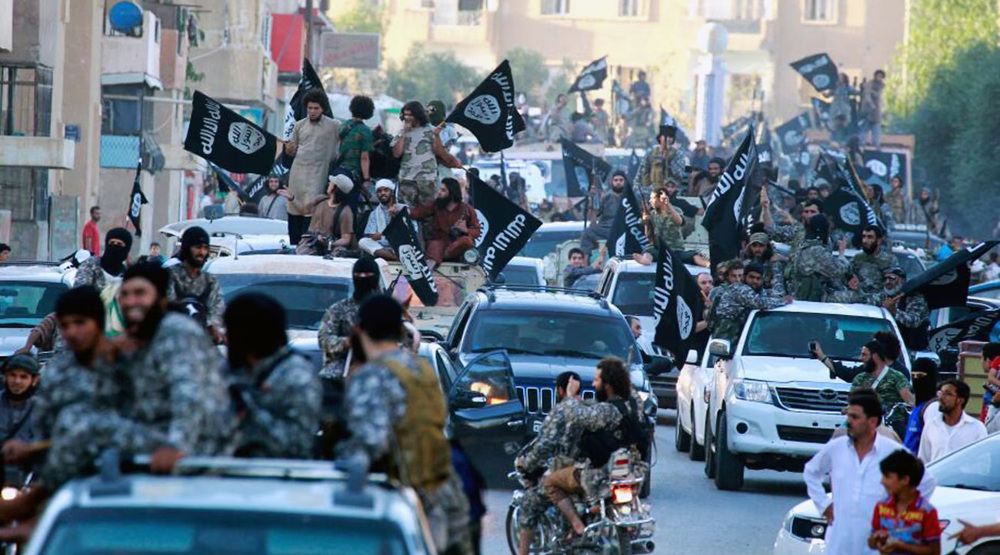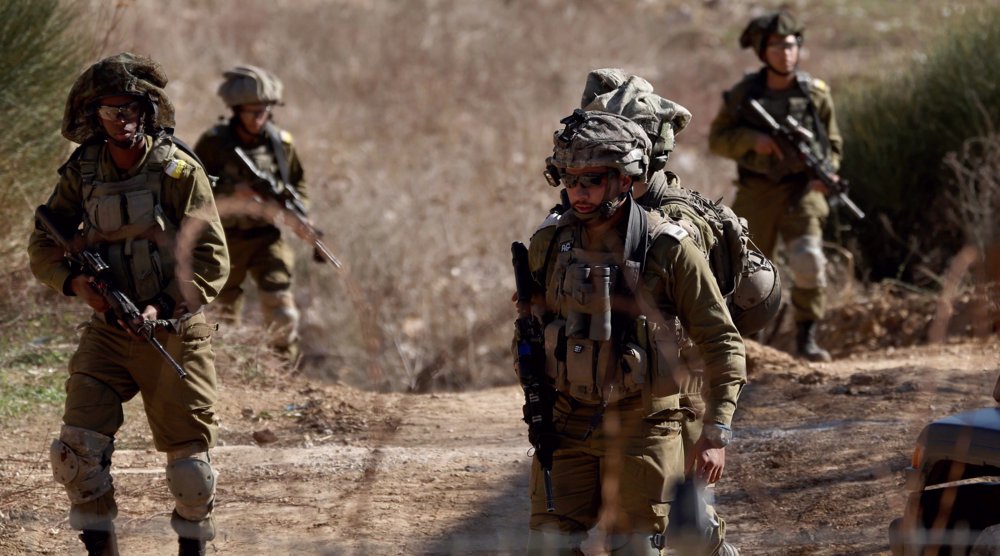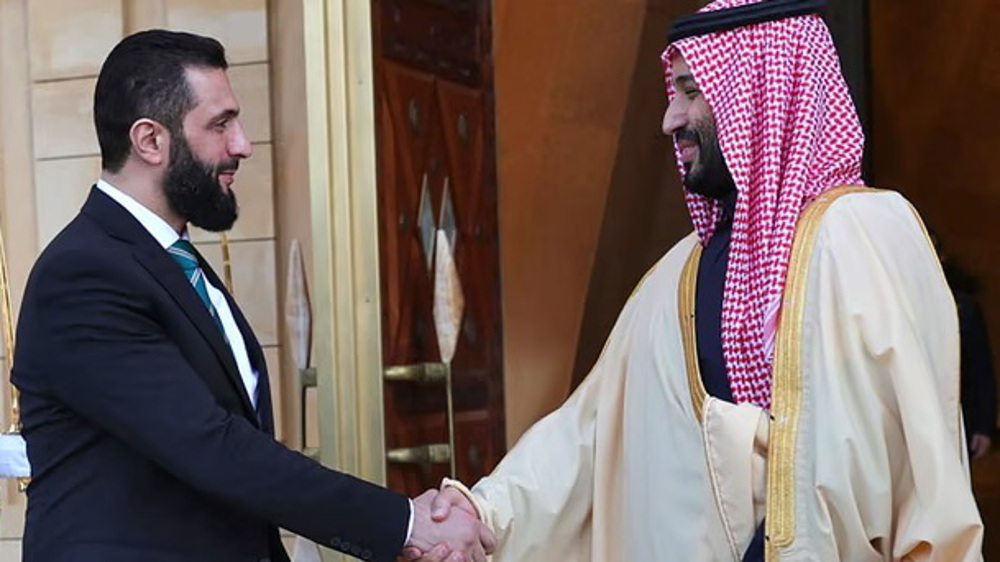Russia ‘concerned’ about Turkey’s military operation in Syria, calls for restraint
Russia has voiced concern about a Turkish military operation in Syria’s Kurdish-controlled Afrin region, calling on the sides to exercise restraint.
"Moscow is concerned at this news. We call on the opposing parties to show restraint," the Russian Foreign Ministry said in a statement on Saturday.
The statement came shortly after Ankara launched a new air and ground operation around the area of Afrin in northern Syria to oust the Kurdish People's Protection Units (YPG), which Ankara views as a terror organization and the Syrian branch of the outlawed Kurdish Workers’ Party (PKK).
The ministry also said that Russian troops were withdrawing from Afrin "to prevent potential provocation and exclude the threat to the life and wellbeing of Russian military."
It added that Moscow was sticking to its position on solving the Syrian crisis based on safeguarding the Arab country’s territorial integrity and respecting its sovereignty.
Following a partial December withdrawal of its troops from Syria after the collapse of the Daesh Takfiri terrorist group, "the main objective of Russian forces remaining in the country is to ensure respect of the truce in de-escalation zones," the ministry said.

Russian jets have been conducting air raids against Daesh and other terror outfits inside Syria at the Damascus government’s request since September 2015.
The airstrikes have helped Syrian forces advance against anti-Damascus militants, who have been wreaking havoc in the Arab country since 2011.
Turkey, Iran and Russia are the guarantors of a countrywide ceasefire in Syria. The three have been mediating a peace process since January 2016 among Syria’s warring sides in Astana, Kazakhstan.
As part of the Astana format, four de-escalation zones have been established across Syria amid ongoing political efforts to find a peaceful solution to the conflict.
The zones have helped reduce fighting significantly, while giving Turkey a breath to beef up security along its southern borders.
Russia to demand at UN that Turkey halt military bid
Meanwhile, a member of the upper house of the Russian parliament's security committee said Saturday that Moscow would support Syria diplomatically and would demand at the United Nations that Turkey stop its military operation in Afrin.
"It is not only Syria that will demand this operation to stop. Russia will support this demand as well and will provide Syria with diplomatic assistance," Russia's RIA Novosti news agency quoted Franz Klintsevich as saying.
Also on Saturday, the Russian Interfax news agency cited Defense Ministry as saying that the country’s military operational group and military police had been relocated from Afrin.
In a statement on Saturday, the Turkish military confirmed it had started an operation in Afrin, saying this was to provide safety for Turkey's border and to "eliminate terrorists ... and save friends and brothers, the people of the region, from their cruelty."
Earlier on Saturday, the military said it hit shelters and hideouts used by the YPG and other Kurdish militants, saying the militants had fired on Turkish positions inside Turkey.
However, the so-called Syrian Democratic Forces (SDF), of which the YPG is a major component, accused Turkey on Saturday of using cross-border shelling as a false pretext to launch an offensive in Syria.
Turkish Prime Minister Binali Yildirim said on Saturday that Turkish "armed forces have started an air campaign in order to destroy elements" of the YPG militants in Syria, adding that eight F-16 aircraft were involved in the aerial sortie.
Meanwhile, Turkish army said in a statement that the airstrikes had struck 108 targets belonging to Kurdish militants, but it did not say whether the targets were all in Syria's Afrin's province.
A Reuters cameraman at the border with Syria earlier reported seeing warplanes fly overheard and carrying out strikes on the Syrian side.
Reports from Kurdish sources said that Turkish fighter jets had carried out 11 raids on the villages of Ain Dikneh, Mariamin, Tal Rif'at, Kafr Jannah, Maranaz and villages in the vicinity of Afrin in the northern countryside of Aleppo.
The YPG said a number of people had been wounded in the air strikes.
Meanwhile, an unnamed Turkish official said that the so-called Free Syrian Army (FSA) militant group was also providing assistance to the Turkish military’s operation in Afrin.

Hours after the military launched an operation in Afrin, Turkish Foreign Minister Mevlut Cavusoglu said that Turkey's armed forces were striking targets in Syria by land and air.
Cavusoglu said the military was targeting terrorists only. He said Turkey had informed the actors involved in Syria about the developments in the Afrin region, adding that Ankara expected its allies to not side with terrorist organizations.
In a phone interview with Turkish broadcaster NTV, Cavusoglu also said Ankara had sent a written statement to the Syrian government.
However, a source at the Syrian Foreign Ministry rejected claims by Turkey that Ankara had notified Damascus about the military operation, saying the claims were part of “a series of lies” that the Turkish government continues to spout.
Red Crescent Society: 555 people killed across Iran in US-Israeli onslaughts
Operational concerns delayed US-Israeli aggression against Iran for a week: Report
Iran slams Israeli attacks on Lebanon, warn UNSC’s inaction to embolden regime
Iran says has ‘no choice’ but to fight back, holds no enmity toward American people
Bahraini police assaults crowds mourning loss of Ayatollah Khamenei
Iran posed no imminent threat to US: Pentagon tells Congress
Iran will hold no negotiations with US: Larijani
Despite Leader's martyrdom, Islamic Republic firmly in control and punishing the enemy











 This makes it easy to access the Press TV website
This makes it easy to access the Press TV website